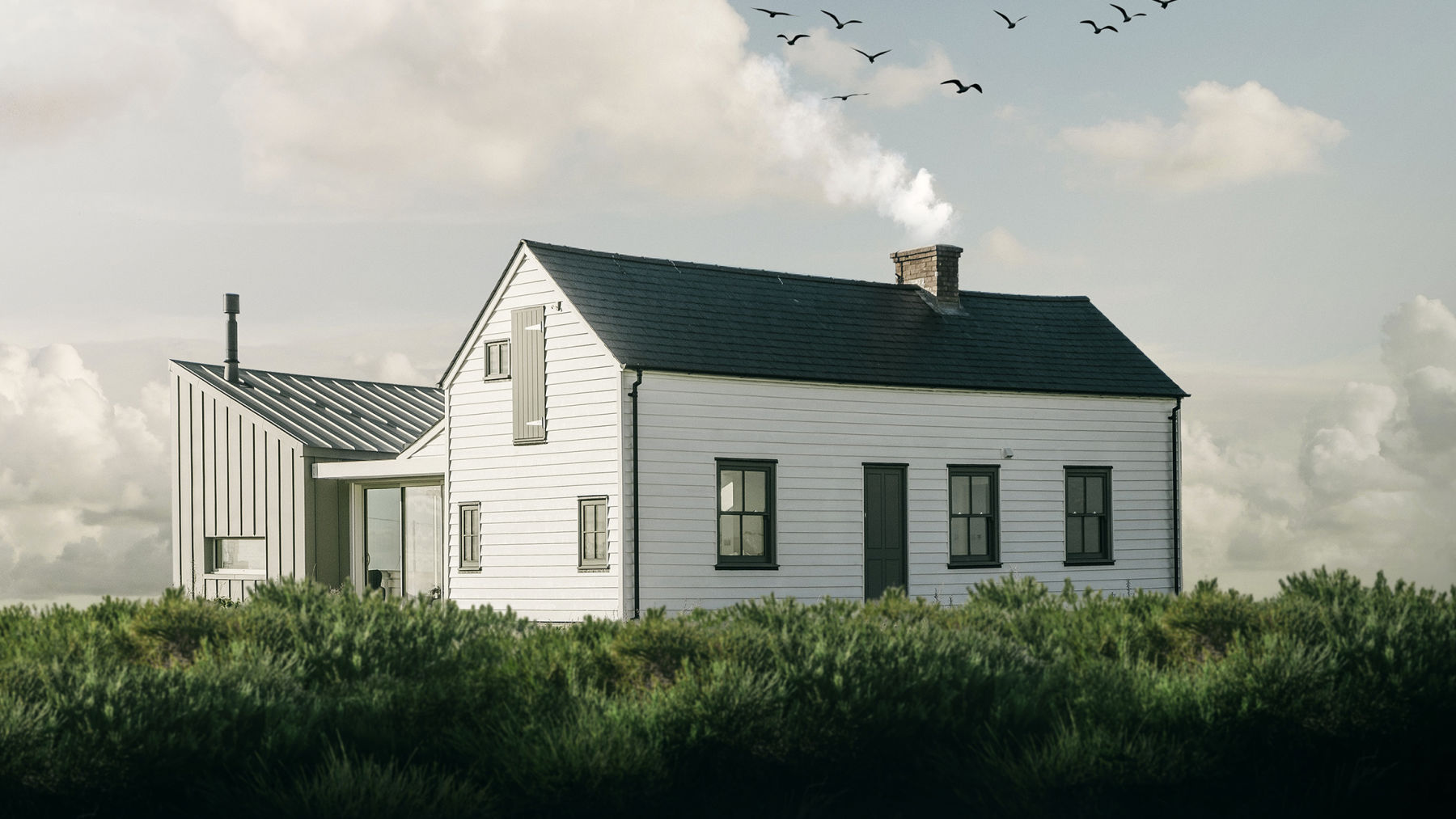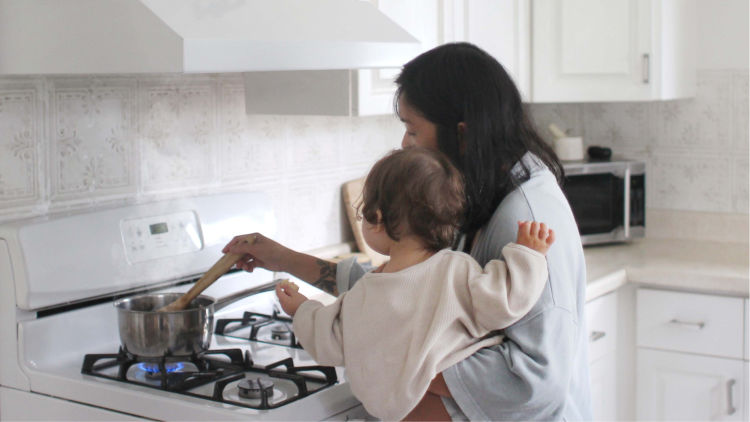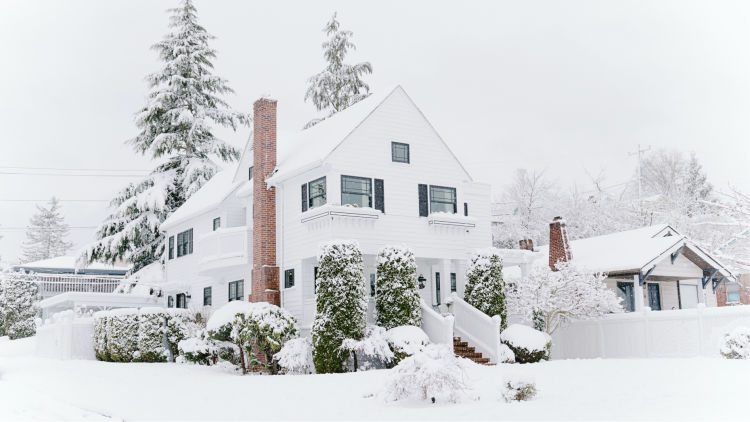Eight Tips to Help First-Time Home Buyers Ease Their Stress
by ecobee on 06/04/2021 in Life & Family
6 min read

So here you are, about to become a first-time home buyer. Maybe you’re the type who’s been putting away down payment savings for years. Maybe, to start contributing to something of your own, you want to swap your rent for mortgage payments. Or maybe you’d like to make a lasting investment that doubles as a cozy place to sprout a family. Whatever sparked your decision, you’re here, and you’re about to make the leap. Congratulations.
The path to purchasing your first home can be rocky without a little guidance, so we’ve crafted eight tips to keep your experience simple and stress-free.
Before you dive into the fun part – looking for a home – you have to take care of the boring part: Your finances.
1) Take an honest look at your financial situation.
Most financial experts agree that first-time home buyers should wait until they’ve saved roughly three to six months of living expenses before they consider their big purchase. You’ll need enough for a down payment, yes, but you’ll also need a sizable amount for closing costs, which your real estate agent will walk you through when the time comes.
Future maintenance costs are an important consideration for first-time home buyers too. The budget increase from renter to owner can take some by surprise, especially if there are a few unexpected repairs early on. A stubborn hot water heater or a leaky pipe is not uncommon, so it’s best to build a repair fund into your savings as well.

2) Get your mortgage pre-approved.
You have your savings calculated and accounted for, but you’ll need to get your mortgage pre-approved before you stroll into an open house and make an offer. Reason being, in a hot real estate market there are often several offers on the table for a home, and the seller won’t want to gamble on one that isn’t pre-approved. The pre-approval process also takes some time to complete, and sellers are usually looking to move through the closing process as swiftly as possible.
First things first: Meet with a mortgage broker, and they’ll walk you through the pre-approval process. Once it's complete, you’ll have a pre-approved mortgage ready for your first offer.
3) Find a real estate agent.
This can be slightly overwhelming for first-time home buyers, but word of mouth is a great tool. Lean on friends and family who recently purchased a home. Think of them as a walking, talking Yelp review, and pepper them with questions about their former agents.
Don’t hesitate to interview a few agents before you make a decision, because a great one can make or break a deal on your dream home. Be direct: Ask how familiar they are with the area you’d like to move to. Do they have experience with the type of home you’re interested in? Perhaps they’re aware of incentives or programs that are available for first-time home buyers.
A solid agent shouldn’t just make first-time home buyers feel comfortable, they should have robust expertise about the area you’d like to purchase your home, as well as the ins and outs of the process.
Since the seller is the one paying the real estate agent’s commission, this is one of the rare occasions you can go shopping for free, so don’t hesitate to be picky. Your future home is on the line.
A first-time home buyer ought to be thoughtful about what they want in a home and honest about what they need.
4) Make a clear list of needs and wants.
Start with the basics: A list, clearly labelled “Needs” and “Wants”. Start with your most-coveted features and work your way down to the least important. If you’re stuck, it will help to sketch out your future plans. If this will be your home for five to ten years, and you have children in mind, a sizeable yard might be a need, while a two-car garage might rank as a want.
No matter how the details of your list pan out, it will end up being a trusty guide that keeps you focused during viewings.

5) Start looking for your home.
Before you start looking at listings, it’s always wise to figure out your price range. Remember, you may be pre-approved for a $650,000 home, but it doesn’t necessarily mean you can afford that price tag. An excellent gauge is to compare your current rent payment to your potential monthly mortgage, and to determine a comfortable ceiling based on the difference. Don't forget to add utility costs if those are included in your rent.
Because there are nearly always unforeseen costs, it’s best to give yourself some financial padding to avoid being put in a stressful spot after your purchase. One great way to nip future costs in the bud is to pay attention to the appliances that will be included with the home. Energy efficient models will be especially helpful, including refrigerators, ovens, toilets, and thermostats. In fact, homes with an ecobee smart thermostat can save homeowners up to 26% in annual heating and cooling costs each year.1
And remember that despite this being an investment, you’ll be living in the home that you choose. In fact, most real estate investments take five to ten years before there’s a significant value increase. Since you may be staying for a while, take your time, research potential neighbourhoods, and keep your list of needs and wants close by as you search.
6) Make an offer.
Once you’ve found a place that ticks all your boxes, your real estate agent will work with you to determine an offer you’d like to present. They’ll also guide you through the negotiations, closing costs, and final agreement. You’re nearly at the finish line.
7) But before you close, get an inspection.
A home inspector will examine the structure and central features, including the electrical system, plumbing, and roof. They'll also make sure that everything is up to building code, and that there are no illegal additions.
If the inspection goes well, you’ll have peace of mind knowing you’re about to make a quality investment. If the inspection uncovers any major issues, you’re free to back out of a purchase provided you asked for a home inspection contingency at the time the contract was written.
An inspection may be an extra cost, but it can help you avoid expensive surprises.

8) Close the deal, pop the champagne.
Assuming your inspection goes well, you’ll be ready to toast to your very first home after you’ve signed your paperwork and closed the deal.
Congratulations are in order, but if you’re the proactive type who moves quickly to their next set of tasks, check out our moving day checklist along with your glass of champagne. Cheers to the next stage of your life.
1 Compared to a hold of 72°F/22°C.
Did you enjoy this article?
Thanks for letting us know!






